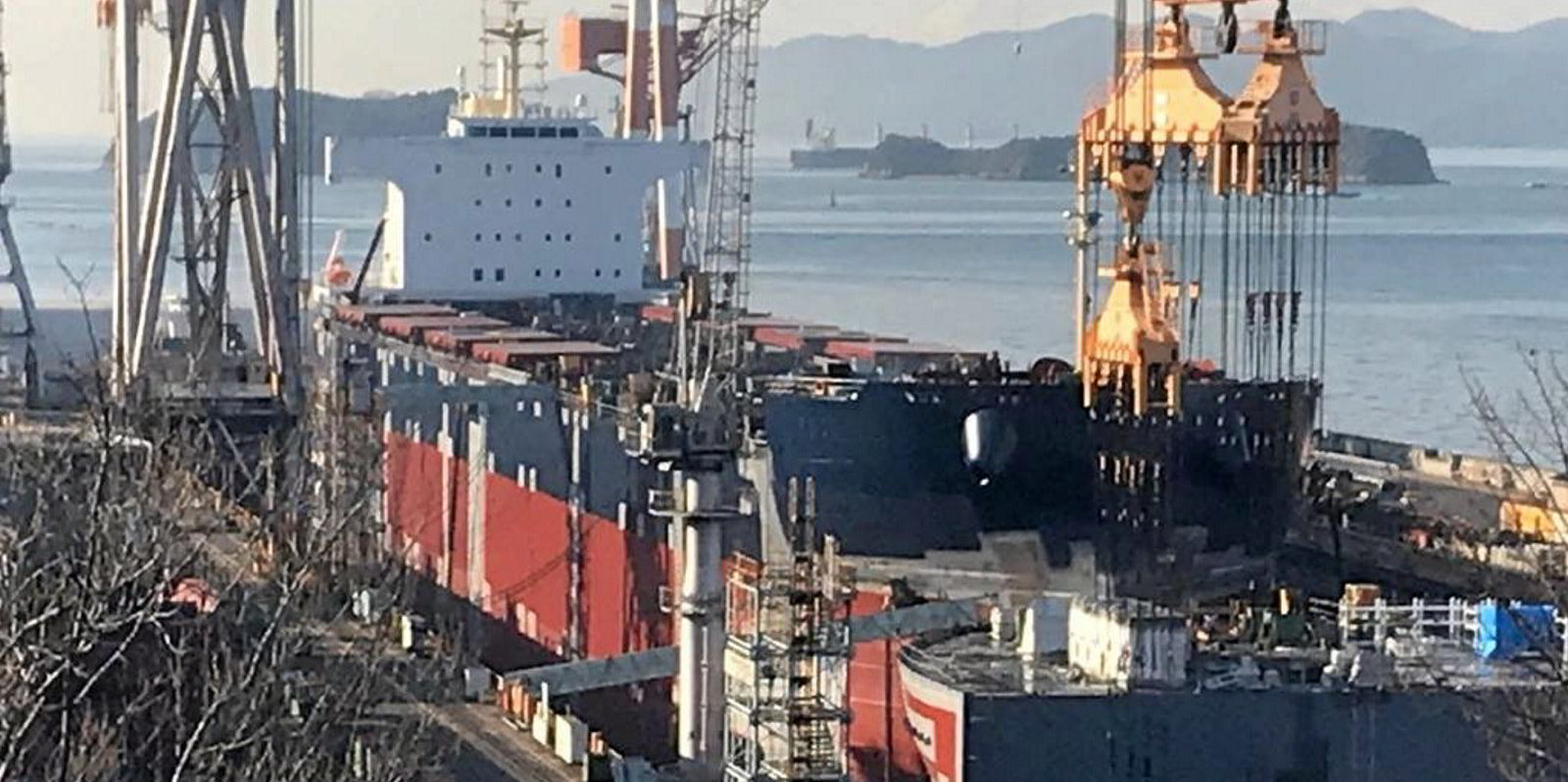US-listed Safe Bulkers has performed what it said was a successful biofuel trial on one of its post-panamaxes and promised to get even bolder with such tests in the future.
The company said it observed “no operational abnormalities or wear” in the main engine or diesel generators of the 85,000-dwt Troodos Oak (built 2020), which travelled with 346 tonnes of B20 grade biofuel on board.
The Troodos Oak trials, carried out in cooperation with the ship’s charterer Cargill, who provided the fuel alongside Oilchart, resulted into a lower CO2 footprint, Safe Bulkers said.
Emission reductions, compared to conventional VLSFO, ranged between 13.5% and 20% — depending on whether the yardstick was the European Union’s Renewable Energy Directive (RED II) or other EU and IMO schemes.
The result encourages Safe Bulkers and Cargill to look further into the use of biofuels as one mean to improve environmental performance, company president Loukas Barmparis said.
“Additional vessels and higher biofuel blends” will now be drawn into the project to measure nitrogen oxide emissions as well.
Safe Bulkers has 49 ships in the water or under construction, from panamax bulkers to capesizes.
The smaller the cleaner
The B20 grade designation describes the biofuel’s content in percentage of spent bleaching earth oil, as it is blended with very low sulphur fuel oil (VLSFO).
Several other companies have already been experimenting with higher-grade biofuels on smaller ships.
After concluding tests with two MR tankers, BP and Maersk Tankers said in December that B30 was a viable solution as a “drop-in” biofuel blended with conventional bunkers.
US-based MTM Ship Management said earlier this month it will follow up with even more ambitious trials after one of its MR tankers burned B30 fuel on a transatlantic voyage.
Italian player d’Amico Group even said on 2 February it plans to roll out B30 to its entire bulker and tanker fleet, following a successful test run on an LR1 tanker last summer.
In a far more advanced test concerning a much smaller vessel, the Spliethoff Group is experimenting with 100% biofuels on a 12,500-dwt ship in the Netherlands.
Blended fuels are one option in shipping companies’ quest to reduce carbon emissions and polish their green credentials, alongside LNG, LPG, ammonia and hydrogen.
Critics of blended fuels have raised concerns about their cost and the risk that they potentially pose to engines.
Another potential sticking point is how the biofuels were created. EU regulators refuse to put a green label on biofuels derived from crops or animal feed, for fear that those encourage deforestation.



